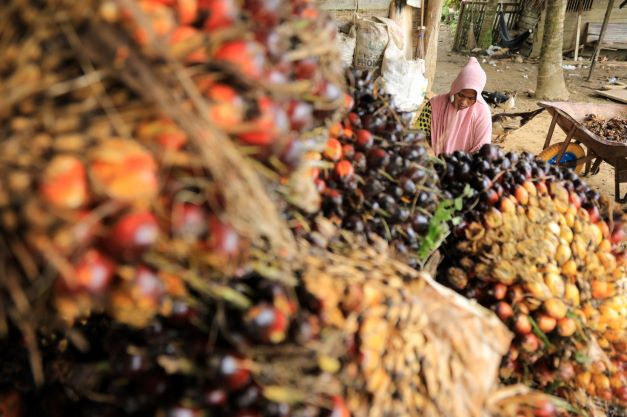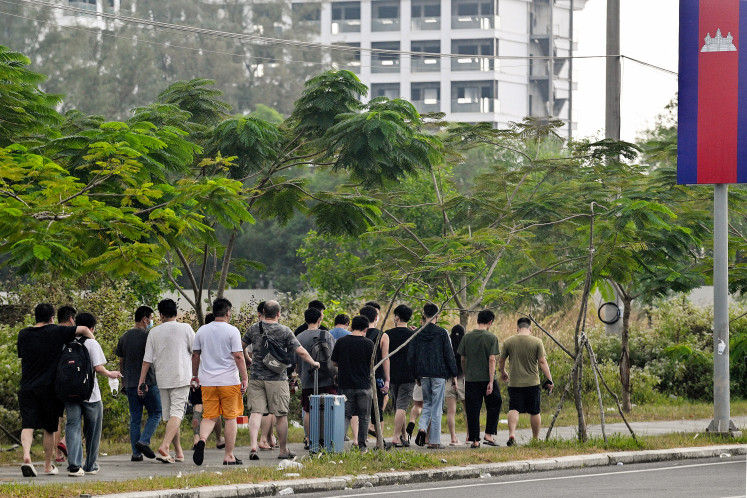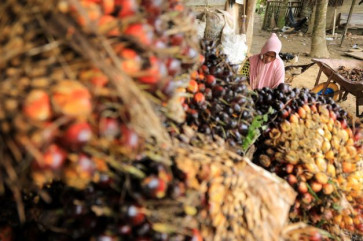Popular Reads
Top Results
Can't find what you're looking for?
View all search resultsPopular Reads
Top Results
Can't find what you're looking for?
View all search resultsUkraine crisis dampens Europe's anti-palm oil sentiment
The sunflower oil debacle should be a great opportunity for Indonesia, the world’s largest producer of palm oil with an annual output of over 55 million tons, of which about only about 55 percent is exported.
Change text size
Gift Premium Articles
to Anyone
T
he Russian invasion of Ukraine has left in disarray not only the global supply chains that are the vast networks of resources, money, information and people that companies have so far relied on to get goods or services to consumers.
As Russia and Ukraine are major producers of oil and natural gas and account for one-fifth of the world’s barley, wheat, corn and other grains, the war has also threatened a food security crisis, driven by two main factors: skyrocketing food costs for consumers and chemical fertilizer costs for producers.
Yet to the biggest advantage for Indonesia is that both Russia and Ukraine also account for 70 percent of the world’s sunflower oil, one of the main vegetable oils consumed in the developed world. As sunflower oil stocks in many countries have been decreasing and its price has become unaffordable for many consumers, palm oil has increasingly become the most popular alternative vegetable oil
The United Kingdom supermarket chain Iceland Food, for one, has been forced to reverse a ban on palm oil amid an acute shortage of sunflower oil, a staple ingredient in frozen french fries and breaded fish. The company will start selling a limited range of own-label products from June that contain palm oil after it banned the ingredient in 2018 in a stand against tropical deforestation.
UK food manufacturers have warned that supplies of sunflower oil could run out in weeks as crops are trapped in Ukraine and Russia.
Richard Walker, the managing director of Iceland Food, was quoted by the Telegraph as saying last week “that as sunflower oil has suddenly become unaffordable, or totally unobtainable, we are working closely with our suppliers to find alternatives. But there are recipes where the only viable substitute for sunflower oil turns out to be palm oil, either because of tastes or properties.”
The sunflower oil supply disruption and the food crisis in general require a fundamental reconsideration of how food is produced, traded and consumed. The increased frequency and severity of shocks, whether as a result of extreme weather events, pandemics or conflict, mean the world needs to diversify where and how food, fertilizer and energy needs are sourced.



















